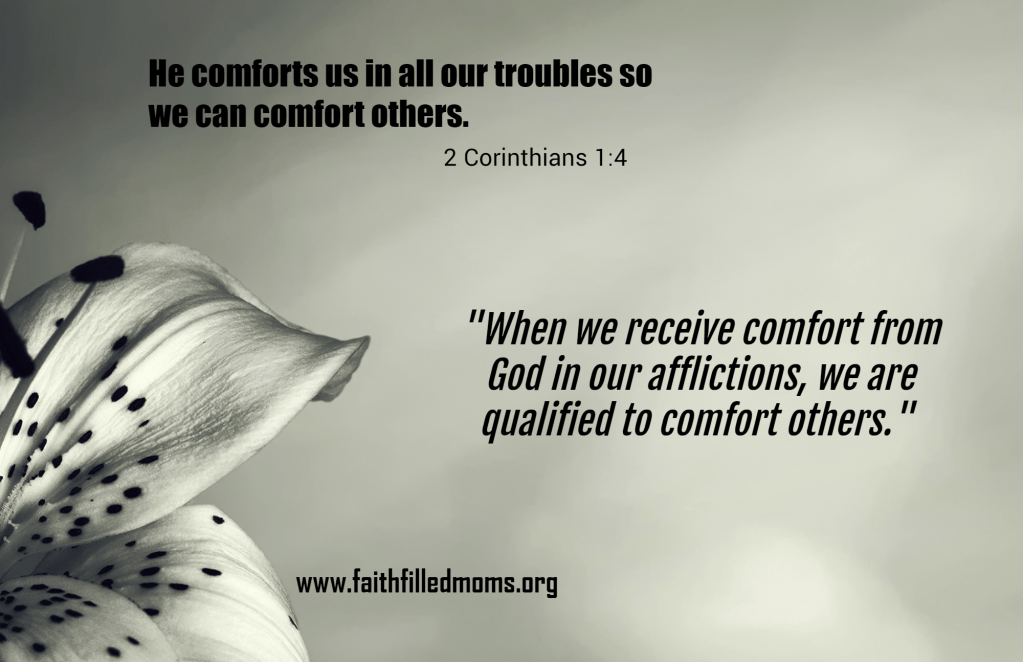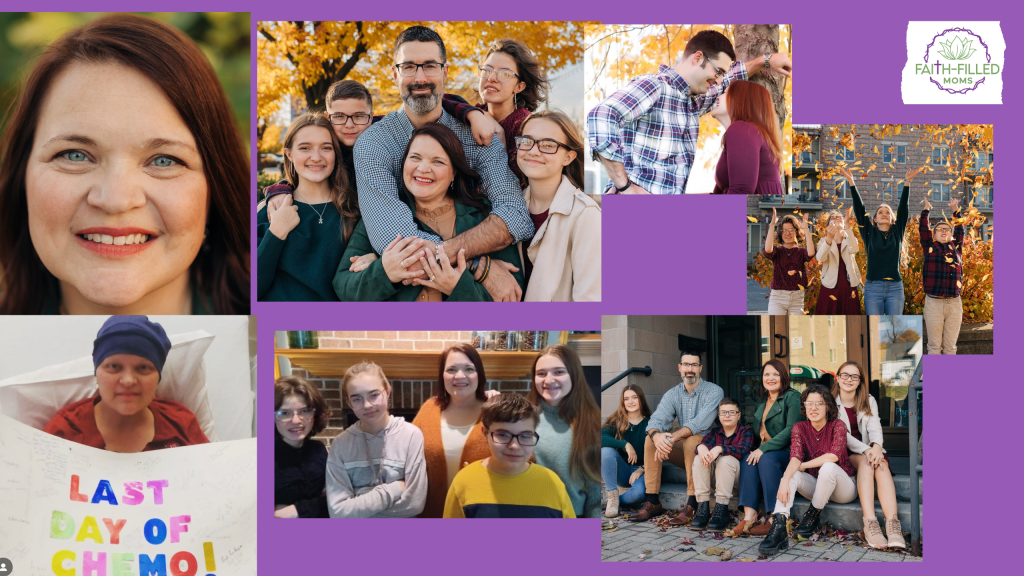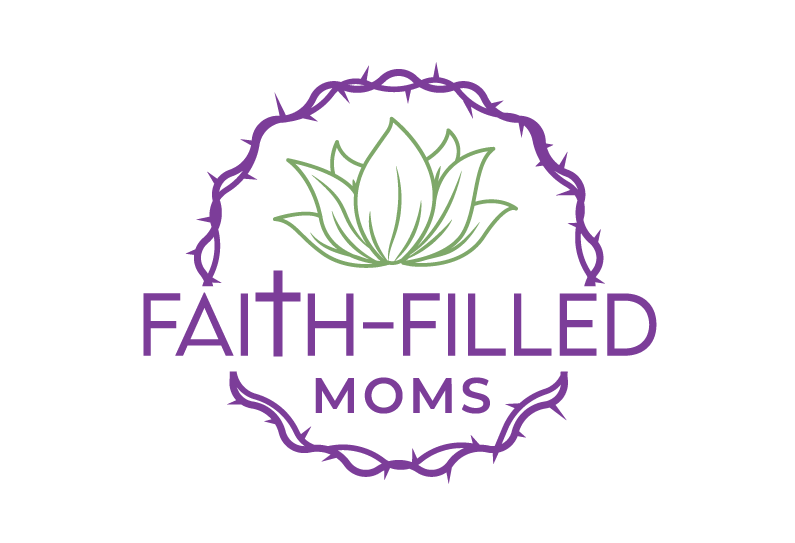
It all began with an accident – tripping over my husband’s crutches. An avid basketball player, my husband was healing from ACL surgery after someone fell on his knee in a game. In a month, the pain in my knee grew from aching to shooting pain. Fiercely independent, it took me a long time to see the doctor. An x-ray was performed at our family practice; my physician suspected a meniscus tear and sent them to the hospital’s radiology department for review. I was sent home and told to expect a call from physical therapy to set up regular appointments.
Annoyed, I went home with one more thing to add to my calendar – and this one for several months! My life was already full with two elementary school-aged kids and two middle schoolers. Two of our children were adopted and had some specific medical and learning struggles. By day, I was a long-term substitute teacher at our kids’ Christian school, and my evenings were filled with homework assistance. Every morning, I made time to study God’s word, complete meal plans and lesson plans, do my exercise routines, and have family devotions at dinner.
In addition to my regular daily routine, we had a wall calendar for the family and a thick Day-Timer for me to track all of our appointments and activities. I was proud of my self-sufficiency – of how hard I worked in and out of my home, and of how intentionally we parented our kids to be both responsible and to know the Lord. The thought of months of PT irritated me as I considered our already full schedule. I took a deep breath and decided I was complaining too much and needed to grow up.
The phone call came only a couple of hours after my initial appointment with the doctor. I remember thinking that the physical therapy office was on top of things, calling so quickly, but it was my physician’s voice on the line. There was hesitation in his voice as he informed me a mass with a fracture next to it was found in my lower femur. He told me the size of the mass and assured me that we shouldn’t jump to conclusions and that a biopsy would be needed to determine if it was cancer. I detected sadness in his voice as he had helped me deliver both my biological babies and had been treating our family faithfully for over ten years. I felt numb as I hung up the phone. I called my husband, yet I don’t remember one word from that conversation.
I had two biopsies over the next month; the first was inconclusive. The second, more invasive, led the doctors to believe I had cancer. The final diagnosis required an orthopedic surgeon to surgically remove two-thirds of my femur and replace it with a new knee and steel rod that was medically glued into my remaining femur about a month after the biopsies. They tested the removed bone and confirmed a diagnosis of Osteo-Sarcoma.
Osteo-Sarcoma is a bone and connective tissue cancer that usually occurred in teenagers and twenty-year-olds. I was in my early forties! One unusual thing was that my body had constructed a calcified wall around my tumor, so there was no way to determine how long I even had it.
My case was unique, so I would need to schedule surgery to prevent a traumatic break from occurring due to the fracture before receiving chemotherapy. Ordinarily, an oncologist would test different chemo concoctions to see which combination of chemo would best shrink the tumor and if needed, surgery would be performed at a later date.
My case required the doctors to do things backward, which meant surgery first, followed by physical therapy for a month to improve my strength and range of motion, followed by 6-9 months of chemotherapy. The first chemo mixture was too hard on my body, so they adjusted it. I would need 4-5 days of in-patient treatment, requiring me to stay overnight at the hospital every three weeks.
I began chemo in August, but by December, I had to stop after ending up in the ICU because of issues with my heart. My kidneys also shut down and there was no way that my body could take another four months of treatment. After having surgery, rehab, and chemo, I lost all my hair, experienced extreme fatigue (sleeping 18-20 hours a day), stomach issues (tolerating only broth with a little bit of rice), and required complete dependence on others.
God sent a small army of His people to serve us – from our family (who flew in to assist us), our church family, and our school community. They brought us meals, drove me to PT and other appointments, drove our kids home from school every day, did our laundry once a week, came after school to help our kids with homework, and transported them to dance and karate. They also sent me encouraging cards and messages almost daily. It was a beautiful picture of the family of God serving. Initially, I really struggled with this help as I prided myself on getting all the things done and done well for my family. Through this, God revealed the pride in my self-sufficiency and my desire to control everything around me.
I learned that God truly holds all things together. He held our family together as my husband and I processed our grief and helped our kids process their grief and fear. He sustained me as I lamented the loss of some of my mobility, living in pain with nerve damage in my hands and feet. I struggled to remember or think clearly due to the effects of chemo on my mind. I thought about Colossians 1:17 which states “in Him, all things hold together.” The idea of God upholding or sustaining or keeping us is peppered throughout scripture. I saw this work in our family’s lives and my own heart, as His strength and daily presence enabled us to get through one more day as we cried out to Him and held fast to one another.
Once chemo was complete, it took a good six months for my body to heal from it—for my hair to grow back, for my stomach to handle anything other than bland foods and for the fatigue to subside. I began the second phase of PT where I could finally work on more strengthening of my right leg’s muscles so I could drive and discover what my new level of mobility would be. As the chemo’s destruction of my cells didn’t allow for much muscle to be built, we worked on flexibility instead.
I had to contend with some long-term effects of chemo. The nerve damage in my hands and feet felt like constant pins and needles, making me sensitive to touch, and I experienced numbness which led to weak depth perception when walking. This has healed some. My hands feel mostly normal now, and my feet have greatly improved, but weather changes and exercise make it worse.
I also have hearing loss in my right ear and use a hearing aid. This loss isn’t severe, so sometimes the hearing aid helps and other times it doesn’t, but it makes communication with my family difficult. Lastly, my mobility is not what it used to be. I am thankful to have kept my leg and that I can walk, but I have deeply grieved not being able to run as I used to when I would complete half-marathons.
I also used to hike freely. I now use poles for hiking, and stairs and inclines are very difficult for me. I miss how carefree I could be with my body – dancing in the kitchen, plopping down in the grass to watch cloud shapes with my kids, playing tag, or catching them for a tickle. It’s tough not being able to get down on the floor easily. I used to be a fun and physical mom and it has been hard to adjust to the lack of freedom that I now have with my body, and always having to be so cautious.
Loss and limitations are hard. I have learned that grief from loss and new limitations comes in waves. I have tried unsuccessfully to foolishly ride these waves on my own, but with God by my side, I am anchored to an unchanging rock. I have the privilege of being able to cry out to God Almighty, Himself. He is near. He listens. He holds me together. He holds my imperfect body together. He holds the hearts and minds of our family together.
If I am experiencing grief, I cry out to Him and lay my physical suffering at His feet. He is strong enough to carry my emotions. I ask two questions – first to God: “What do you have for me today, Lord? This day belongs to You.” And then to myself: “What has God given me to do today and what resources do I have to do it?” This requires an honest assessment regarding my limitations, which is helpful, especially if I’m experiencing a limited body day with a lot of pain and fatigue in my weak leg.
This requires asking more of my children and husband without guilt because God has purposefully given us to one another to serve as Christ served us. It also means not comparing my circumstances and abilities to others. My job is faithfulness to what God has given me. It is not pursuing some idealized version of motherhood, womanhood, or marriage, but pursuing God and the people He has put in my life. On good days I do more, but I am careful not to overdo it because the next day will become a difficult pain and weakness day.
One of the most helpful practices outside of my reflective conversation with God and myself is worship through song and scripture. Most of these have come to me after asking my daily question of God. I have chosen several songs or scriptures to help me in specific circumstances. I ran to Psalm 121 when I felt weak and needed to look to my Helper as a reminder of how powerful He is. If I was afraid, I would recite Psalm 23. If I felt alone, I read Psalm 34 to remember how near God is, and Psalm 109 to remember He pursues me.
If I was hating my body, I listened to Ellie Holcombe’s song “Wonderfully Made”. If I was overwhelmed and looking too far into the future, I listened to Christa Well’s song “One Day,” which helped me focus on the next right step, instead of all my tomorrows. I listened to “Thy Will Be Done,” by Hillary Scott when I was too focused on all of the why questions and knew that I needed to turn my focus on surrendering my life moment by moment to God. These reminders of who God is – and who I am – allow me to be comforted with the truth. They are a balm to our broken, unsteady hearts. When I shared them with my kids, they provided them comfort as well.
Lastly, our grief, suffering, or trials are not meaningless. God gives purpose to those hard things. He is the ultimate transformer. He takes ugly things, like cancer, and redeems them. 2 Corinthians 1:3-4 tells us that when we receive comfort from God in our afflictions, we are qualified to comfort others in their afflictions.
Although we are tempted to believe the opposite, suffering does good work in us as God used the Holy Spirit in us to extend the comfort we receive from God to others. The first place I had the privilege of comforting others was in my home when my kids struggled with the same things I had struggled with. I have seen the beautiful multiplying effect as God has used my suffering to grow me, then grow the hearts of my children, who now have extended the comfort they received from God to others. God uses our physical hardships, so that there is purpose in our pain.

Prayer for Moms:
O Lord, my body is weak and limited. Help me to accept these realities and not fight who You have made. I am fearfully and wonderfully made because I am made in your image. Help me to remember that You work mightily in my weaknesses. In fact, my weakness is an opportunity for Your strength to be revealed in my life. There is something about how You made me that purposefully reflects who You are.
O Lord, I don’t understand why You have allowed these hard circumstances in my life, but I know You are good. Help me to not forget Your goodness and Your love for me. Help me to pursue Your comfort in scripture, worship, and the encouragement of fellow believers so that I can do the good work that You have prepared for me of comforting others.
O Lord, when I feel alone and afraid may I run to You with all of my emotions and thoughts and cry out to You because You are the God who hears. May I remember that You are so very near that You dwell within my heart through the work of the Holy Spirit. May I remember that You are a God who chases after me even through the “valley of the shadow of death.”
O Lord, help me to faithfully parent my kids amid my limitations. Do not let me carry the burdens of perfectionism or comparison. Instead, enable me to point my children to You reminding them of who You are and who they are in You.
Thank You, Lord, for who You are and who You made me to be. I am a bondservant of the Lord. May it be as You have said.

Want to hear more of Christina’s story? Watch Her Moms Night In conversation on YouTube:
Or watch on Facebook here.


1 thought on “How God Transformed My Pain Into Purpose – by Christina Clardy”